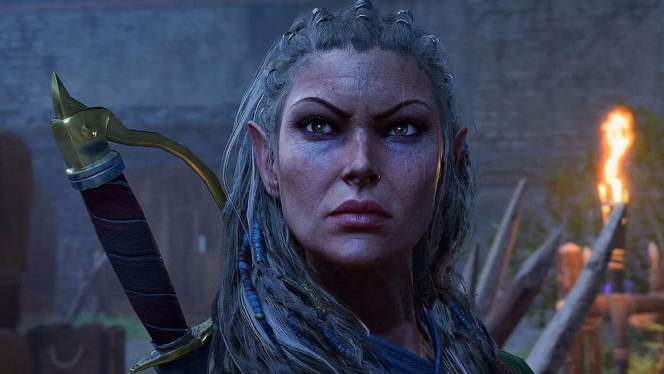Being a silent protagonist comes with unusual perks, and wasting them in Baldur’s Gate 3 can make life difficult and ruin some opportunities.
Conversation plays a massive role in Baldur’s Gate 3, but contrary to what many would expect, silence is often the best option. Because BG3 is a classic CRPG-style role-playing game with a vast story and branching interactions, there’s no shortage of dialogue options. What sets it apart from most of its predecessors is the full voice acting performance. This applies to all characters in the game except the protagonist. He occasionally makes comments but is voiceless in conversations. Although the main character still speaks in the game world, doubling the silence has its advantages.
Most of the conversation options in Baldur’s Gate 3 offer ways to boost the dialogue.
These interjections include comforting words, provocative insults, and everything in between. The words generally speak for themselves, with the single labels that appear having more to do with the background and ability checks of BG3 than with the general categorisation of responses by intention. It is also possible to stop talking altogether by attacking in the middle of a dialogue. Although this option certainly does not rise to a respectable level of decorum.
In BG3, essential conversations can take place with silence
The active Baldur’s Gate 3 dialogue options are occasionally accompanied by choices that allow the protagonist to remain silent for a moment and let the other character continue talking. While this approach may not seem like the best way to organise events according to a master plan, it is often very effective in moving the story in the right direction.
Just as in real life, taking every opportunity to speak is not always the best way to engage in conversation, and Baldur’s Gate 3 acknowledges this fact while allowing for interruptions at almost every turn.
In Baldur’s Gate 3 conversations, the option to remain silent doesn’t always appear in the same way. Sometimes, the choice is simply “Keep quiet”, while other times, it’s explicitly to allow another character to continue. Acting as a third wheel in an ongoing conversation is one common scenario where this option may be relevant, as is listening to a character tell their backstory or move toward a decision or revelation. Regardless of the situation, the inclusion of the option to play the monologue or dialogue independently usually indicates that there is a legitimate reason for refraining from intervention.
Silence allows character development in Baldur’s Gate 3
Character arcs play a big part in Baldur’s Gate 3, and choosing to listen is sometimes the perfect way for characters to get through battles. While some nudging in the right direction doesn’t always lead to bad things, party members who make big decisions are usually able to stay on the right path. Letting them come to their own conclusions is usually a reliable way to avoid the impression that the protagonist wants to dictate the lives of others or meddle at every opportunity.
The second act of Baldur’s Gate 3 offers many great examples of such branching paths, as many Origin characters begin to achieve their goals as their backstories are revealed, and their motivations begin to change. Shadowheart, who in some ways is a somewhat quieter and more self-reflective character, is a great example. An important decision when it comes to Night Song forces him to make a critical choice, and the potentially huge consequences if Shadowheart follows his Sharran beliefs can make the prospect of trusting him seem daunting. However, his choice is actually a much safer choice.
This particular scenario relies heavily on the relationship between the protagonist and Shadowheart in Baldur’s Gate 3, as playing through with evil choices or a lack of influence from Shadowheart could result in failure.
However, as long as the conditions are favourable, you can skip the high DC control that would otherwise be needed. Another intriguing Act, 2 example of this process, arise when dealing with Gale in a hidden room in Moonrise. Here, left to his own devices, the wizard is able to fight back the temptation to use dark magic thanks to his consideration of the inevitable disapproval of the goddess Mystra.
Source: GamePressure















